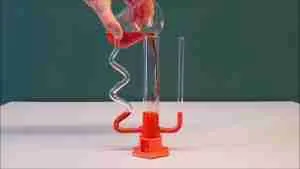4 years ago I was enjoying an afternoon coffee with my friend, Jordan. Our typical discussions range between work culture, economics and pros/cons of living in the UK.
He’s a big property fan and I always like to tease him that buying your own place is not the best use of your money. Especially while I own one and he doesn’t.
But there was this one time I vividly remember. We were arguing about how technology is taking our jobs. I’m a technologist by nature, he’s a mechanical engineer. I was trying to make a point that although technology is eliminating some jobs, it creates many others. Cars replaced horses. Tractors replaced hundreds of humans.
The engines went a step further with jet engines and helicopters. This created new industries and services around them. Then the personal computer, video games, genetic engineering are some of the best inventions of the previous century.
Sure, automation took some jobs but it created so many others – I’m a living example of that!
My point was that automation has always been here. There’s nothing different this time. This same fear was present 50 years ago when one factory machine replaced hundreds of shoemakers. The net effect has been to decrease the demand for low-skilled information workers while increasing the demand for highly skilled ones.
Jordan’s point was that this time is different and it’s much worse from the human labour point of view. In short, we’ll run out of jobs soon!

4 years have passed and I’m constantly thinking about technology and how it’s eliminating jobs in one industry after the other.
We have had an amazing century. Manufacturing, the Internet. All these inventions gave a massive boost to the economy, productivity and to people’s quality of life and wages.
But from now on, could it be that although technology is making our lives better (and much cheaper) it’s also destroying more jobs than it creates?
The phrase software is eating the world is now more true than ever. If you’re a programmer, watch this video, I dare you. The program is writing its own software after the instructor tells it what to build in plain English. An AI miracle, indeed.
As a coder myself, I can only see this massively helping me automate mundane tasks. But how long until this is smart enough to replace the middleman between the business and the deliverable i.e. Me?
Wix & Squarespace have done the same – replacing website code with drag & drop functions. This is fantastic as it makes simple websites super-easy and cheap to make while also looking professional. But it’s also deflationary. This inefficiency called human that was paid to translate your requirements into a website is now gone.
You can say the same thing about agriculture. The tractor completely changed how we grow crops. People lost their jobs. But although we lost the need for expertise in one area, we required an equal amount of expertise in another area.
On the upside, technology gave us so much more. Things we could not even imagine 20 years ago.
We have the chance to do more things, cheaper, faster and at scale. I can start a yoga studio from my room and offer classes online across the world. (Ok, maybe I won’t). I can open a multi-national shop selling to 100 countries with little effort. The products can be automatically sent and safely stored in an Amazon warehouse which handles the entire order fulfilment, returns and payments too.
How awesome is that!
Right now, you’ve got a travel agency, a map, and a phone “line” on your phone mostly for free. Those investing in renewable energy will soon get electricity, heating and car fuel cheaper too.
I’m starting to believe that the sacrifice comes not only as a loss of privacy. But as a loss of the ability to find work too.
These deflationary forces remove friction. Human = friction. The customer journey must be as smooth as possible. So I’m sometimes thinking: What sort of career paths would exist in 20-30 years from now?
In the current robot-era:
- You no longer go to a travel agency to book holidays. You can search on Skyscanner for free and probably find better deals too
- Placing your investments no longer happens on a call with a broker. You buy shares at a tap of a button on your phone (or on a desktop computer if you’re like me!).
- Soon we won’t be ordering an Uber with a driver in it anymore. Just the car, please.
5? 10 years? How many years until drones replace the Amazon driver delivering our parcel?
5 years ago I used to hire an accountant to file my company tax return. I just filed one for half the price (and half the effort to be completely honest) using online accounting software.
So if all these jobs are gone one after the other, how many more jobs can technology create? My guess is not as many as it destroys. Jobs growth is gradually distancing itself from productivity.

What this data tells us is that in the past, gains in productivity, innovation and GDP were reflected in people’s jobs and rising wages. This trend has stopped around 2000. Although productivity kept rising, private employment and median family income have stayed the same.
Up until 2000, American workers not only created more wealth but also captured a proportional share of the gains. That’s not the case anymore. I’d argue the shift is happening in all developed countries, not just in the US.
In their excellent video, Kurgezagt say:
In 1998, US workers worked a total of 194 billion hours. Over the course of the next 15 years, their output increased by 42%. But in 2013, the number of hours worked by US workers was still 194 billion hours.
What this means is that despite productivity growing by 42%, thousands of new businesses opening up and US population growing over 40 million people, there was no growth at all in the number of hours worked in 15 years.
It will be an interesting experiment. Our economies are based on the fact people spend money. 60-65% of the UK GDP is consumer spending. If the machines take our jobs, then there will be less and less money to spend for the majority of people. And since machines don’t ask for pay rises, more wealth will be concentrated on their owners – a few tech oligarchs.
If Marc Andreessen is right: “The spread of computers and the Internet will put jobs in two categories: People who tell computers what to do, and people who are told by computers what to do.”
This is not some science fiction. I’ve written a few paragraphs without even mentioning the word Artificial Intelligence yet. It’s making great steps and not only in the self-driving car space which is the first thing that comes to mind. It gives me back time by actually helping me categorise my business transactions. It knows my habits and therefore gets it right more times than not.
We have free time to read blogs like Foxy Monkey because the standards of living have improved enough so that we work 10 hours not so much for a loaf of bread anymore, but more for buying the next iGadget.
Technology providing the same goods/services as 20 years ago at a lower cost of living can be beneficial. Something to keep in mind if we stop the overconsumption and the creation of new needs.
Maybe we won’t need to work crazy hours if we get everything cheaper anyway. This will reduce inequality and drive poor people to basic living standards. The same people that now require a 40-hour work-week at a low wage job.
To sum up, the future of our jobs looks less bright due to the automation approaching from all angles. I might be wrong and we see a productivity growth in all sort of areas with more human jobs in it. A shift from humans doing less shelf-stacking to more highly skilled jobs in new industries like space and biotech.
I have changed. I think Jordan is right. This time is different.









8 thoughts on “Jobs vs Robots”
Is this the way to a possible future where nobody needs to work because everything is abundant and limitless?;) Perhaps if that were the case there would not be a need for human jobs as technology can do everything. Even create itself. Why limit this to websites when you can have technology create robots which create everything else that humanity uses, agriculture robots, manufacturing robots and others..
I’m not sure if it’s a good future, but it’s a possible one indeed. I think the spread between irony and reality is narrowing.
Very interesting.
However, wouldn’t you say that it would be in the government’s (any government of any country) interest to ensure that there will always be a certain amount of the workforce which remains human, since machines don’t pay taxes? Or perhaps the owners of such machines will pay the taxes?
Tax is always an interesting subject. I’d say governments would need to ensure there will always be human jobs for other reasons such sense of purpose, the social aspect of working etc. Personally, I wouldn’t want to live in a society where I get paid a universal basic income whilst tax on corporations is very high.
It’s going to be very challenging for governments to keep a balance. They need to cut the pie fairly while promoting business and innovation – if (when?) the workforce shrinks more.
CGP Grey’s 2014 video on the topic (https://www.youtube.com/watch?v=7Pq-S557XQU) is incredibly sobering. It demonstrates that even those in professions you might think of as robot-proof aren’t safe, including doctors!
The video is from 6 years ago and it could not describe the robot-era any better, thanks for the link! Probably the most important bit comes from the conclusion:
This may have been a lot to take in and you might want to reject it. It’s easy to be cynical of the endless and idiotic predictions of futures that never are. So that’s why it’s important to emphasize again that this stuff is not science fiction. The robots are here right now. There’s a terrifying amount of working automation in labs and warehouses. We have been through economic revolutions before, but the robot revolution is different.
Regarding doctors, Mr MedFI can tell us more about it – but I wouldn’t want a robot to perform complex surgery. Having said that, I can see myself trusting data-driven decisions (by analysing millions of previous outcomes and patterns) taken by software when identifying illnesses and especially in preventing them, don’t you think?
I’m sure research already leans heavily on computerised/algorithmic processes – seeing it progress to relying on AI or true automation isn’t a massive stretch. Agreeably the ‘hands off’ aspects of healthcare are likely to be the first to undergo true robot-isation. Surgery is already being part-performed by robots (cf The Da Vinci Robot). To assume that the rest of human-delivered i.e. face-to-face healthcare is immune for this inexorable progression would be naive!